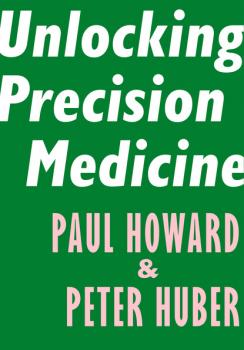ТОП просматриваемых книг сайта:
ЛИТМИР - LITMIR.BIZ - Электронная библиотека
Скачивание или чтение онлайн электронных книг.A Little Guide for Teachers: Supporting Behaviour in the Classroom - Fintan O'Regan
A Little Guide for TeachersАннотация
Аннотация
An estimated fifty million people in the world suffer from dementia. Diseases such as Alzheimer's erase parts of one's memory but are also often said to erase the self. People don't simply die from such diseases; they are imagined, in the clichés of our era, as vanishing in plain sight, fading away, or enduring a long goodbye. In <i>On Vanishing</i>, Lynn Casteel Harper, a Baptist minister and nursing home chaplain, investigates the myths and metaphors surrounding dementia and aging, addressing not only the indignities caused by the condition but also by the rhetoric surrounding it. Harper asks essential questions about the nature of our outsized fear of dementia, the stigma this fear may create, and what it might mean for us all to try to “vanish well.”<br><br> Weaving together personal stories with theology, history, philosophy, literature, and science, Harper confronts our elemental fears of disappearance and death, drawing on her own experiences with people with dementia both in the American healthcare system and within her own family. In the course of unpacking her own stories and encounters—of leading a prayer group on a dementia unit; of meeting individuals dismissed as “already gone” and finding them still possessed of complex, vital inner lives; of witnessing her grandfather’s final years with Alzheimer’s and discovering her own heightened genetic risk of succumbing to the disease—Harper engages in an exploration of dementia that is unlike anything written before on the subject.<br><br>
Expanding our understanding of dementia beyond progressive vacancy and dread, <i>On Vanishing</i> makes room for beauty and hope, and opens a space in which we might start to consider better ways of caring for, and thinking about, our fellow human beings. It is a rich and startling work of nonfiction that reveals cognitive change as an essential aspect of what it means to be mortal.
Expanding our understanding of dementia beyond progressive vacancy and dread, <i>On Vanishing</i> makes room for beauty and hope, and opens a space in which we might start to consider better ways of caring for, and thinking about, our fellow human beings. It is a rich and startling work of nonfiction that reveals cognitive change as an essential aspect of what it means to be mortal.
Аннотация
New medicines in the pipeline can extend lives, save money, and even help prevent disease before symptoms appear – if we don’t discourage their innovators and investors by trying to lower drug prices artificially. Unlocking Precision Medicine explores the environment necessary for creation of these health care game-changers, and explains how the marketplace can effectively make them more affordable to all without killing the golden goose.  
Информация о книге
Автор произведения Peter Huber J.
Жанр Зарубежная деловая литература
Серия Encounter Intelligence
Аннотация
What happens when a leading conservative economist goes mano a mano with today’s most influential exponent of left-liberal economics, over free markets versus government interventionism? Here are highlights of that showdown between Stephen Moore of the Heritage Foundation and Paul Krugman, Nobel laureate.Moore and Krugman sparred over eight major economic issues in our national debate – from whether the policy response to the crisis of 2008 was successful, to the outlook for Obamacare, to the “red state / blue state” divide. The contest was cordial and spiced with wit. (Does air conditioning explain the migration from blue to red states? Is Houston still uninhabitable?)This high-powered matchup illuminates a clash of worldview that leads to opposing policy prescriptions. More important, it will help you draw conclusions about which economic policies work.
Аннотация
Democratic presidential candidates, including Hillary Clinton and Bernie Sanders, along with progressive economists like Thomas Piketty and Paul Krugman, have made a case for redistributing income from the wealthy to the poor as a means of reducing inequalities in income and wealth. Meanwhile, public opinion polls show that voters reject programs of redistribution in favor of policies designed to promote overall economic growth and job creation. While voters are concerned about inequality, they are more skeptical of the capacity of the government to do anything about it without making matters worse for everyone.   In this Broadside, James Piereson explains why the voters are right and the progressive politicians and economists are wrong. As he demonstrates, the progressive case is based upon a serious fallacy: it assumes that the government is actually capable of redistributing income from the wealthy to the poor. For reasons of policy, tradition, and constitutional design, this is not the case. The United States currently has one of the more progressive income tax systems in the industrial world but it does little to redistribute income from the wealthy to the poor. One reason for this is that, though the government spends vast sums on programs to aid the poor, most of these funds flow to providers of services rather than to the poor themselves. Thus, whatever one may think of inequality, redistributive tax and spending policies are unlikely to do much to ameliorate it but will instead line the pockets of providers and advocates who wield great influence in Washington.
Аннотация
Cronyism is a serious problem in the United States, but unfortunately it is still not very well understood. In this new essay, Jay Cost explains what it is, and why we should be so worried about it. By mingling private and public interests, cronyism costs us hundreds of billions of dollars per year and threatens to transform our republic into an oligarchy, where the rich dominate the middle class. Worse, modern cronyism has become embedded into the laws themselves, so politicians in Washington assume that such corruption is just the way things should be. To confront the dangers of cronyism, reformers need to think outside the box, paying special attention to how the political process functions.
Аннотация
This volume weaves together the Scottish otter stories from Gavin Maxwell's three non-fiction books, Ring of Bright Water (1960), The Rocks Remain (1963), and Raven Meet Thy Brother (1969). Maxwell was both an extraordinarily evocative writer and a highly unusual man. While touring the Iraqi marshes, he was captivated by an otter and became a devoted advocate of and spokesman for the species. He moved to a remote house in the Scottish highlands, co-habiting there with three otters and living an idyllic and isolated life at least for a while. Fate, fame, and fire conspired against this paradise, and it, too, came to an end, though the journey was filled with incident and wonder. Maxwell was also talented as an artist, and his sinuous line drawings of these amphibious and engaging creatures, and the homes they occupied, illustrate his story. This book stands as a lasting tribute to a man, his work, and his passion.










